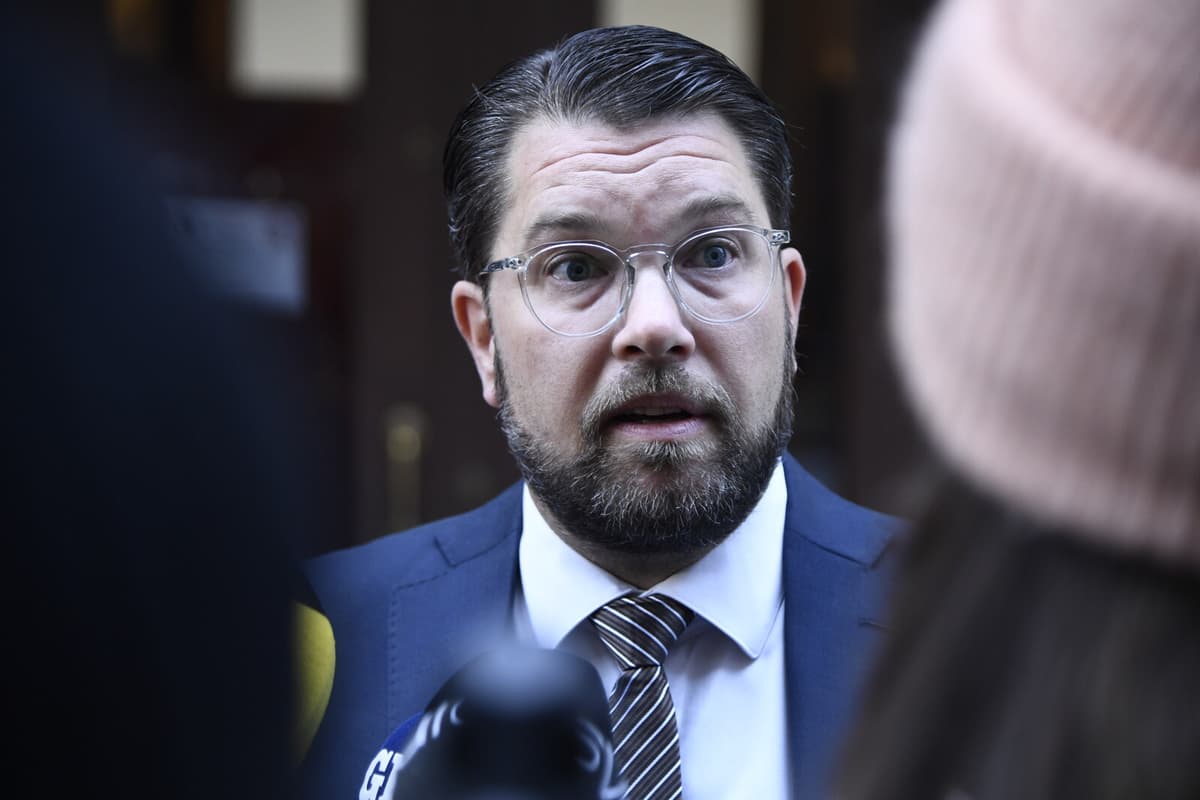On the question of whether he is disappointed, Åkesson responds:
Yes, to Richard Jomshof and other members of the Justice Committee who may have acted in such a way. You can do that, but maybe not if you work with those issues.
Jomshof announced on Monday that he is stepping down as chairman of the Justice Committee because he does not support the SD's agreement with the government to ban the semi-automatic rifle AR-15 for hunting.
"Quite natural"
It's quite natural anyway to take the consequences of not wanting to represent the party's policy in the area where you are responsible, as in this case the Justice Committee, says Åkesson.
I had a good conversation with Richard yesterday. This happened with 100 percent consensus. I think it's good.
The new chairman of the Riksdag's Justice Committee will be the party's vice chairman Henrik Vinge.
But Jomshof is not alone in opposing the party's U-turn on the weapons issue. Several heavyweight SD politicians have openly criticized the decision, which is very unusual in the top-down controlled SD. On Monday, the issue was discussed at length at a party executive meeting, and on Tuesday, the parliamentary group will discuss the matter again.
But Åkesson downplays the split. He thinks the debate is a sign of health, showing that SD has become the big party it always wanted to be.
It's part of political maturity to be able to have a high ceiling and have an internal debate, says Åkesson.
But at the same time: The cards are laid. If I take the other governing parties into account, then that's what applies and everyone has to accept it.
When an investigation last spring proposed banning AR-15 for hunting, SD was against the proposal.
Reality changed partially last week after the massacre in Örebro. Then you have to be prepared to re-evaluate.
Criticism from M and KD as well
Criticism of banning AR-15 has also come from Moderates and Christian Democrats.
Justice Minister Gunnar Strömmer (M) emphasizes that it is a preventive measure that does not target Sweden's hunters and sports shooters.
It's naturally about going after individuals who shouldn't have weapons, he says.
Strömmer thinks it's understandable that there is a discussion about "rather difficult" trade-offs between maintaining security and giving hunters and others a lot of space to practice their activities.
On the question of whether Strömmer has his party with him, he responds:
Yes, of course, otherwise we wouldn't have entered into the agreement.






